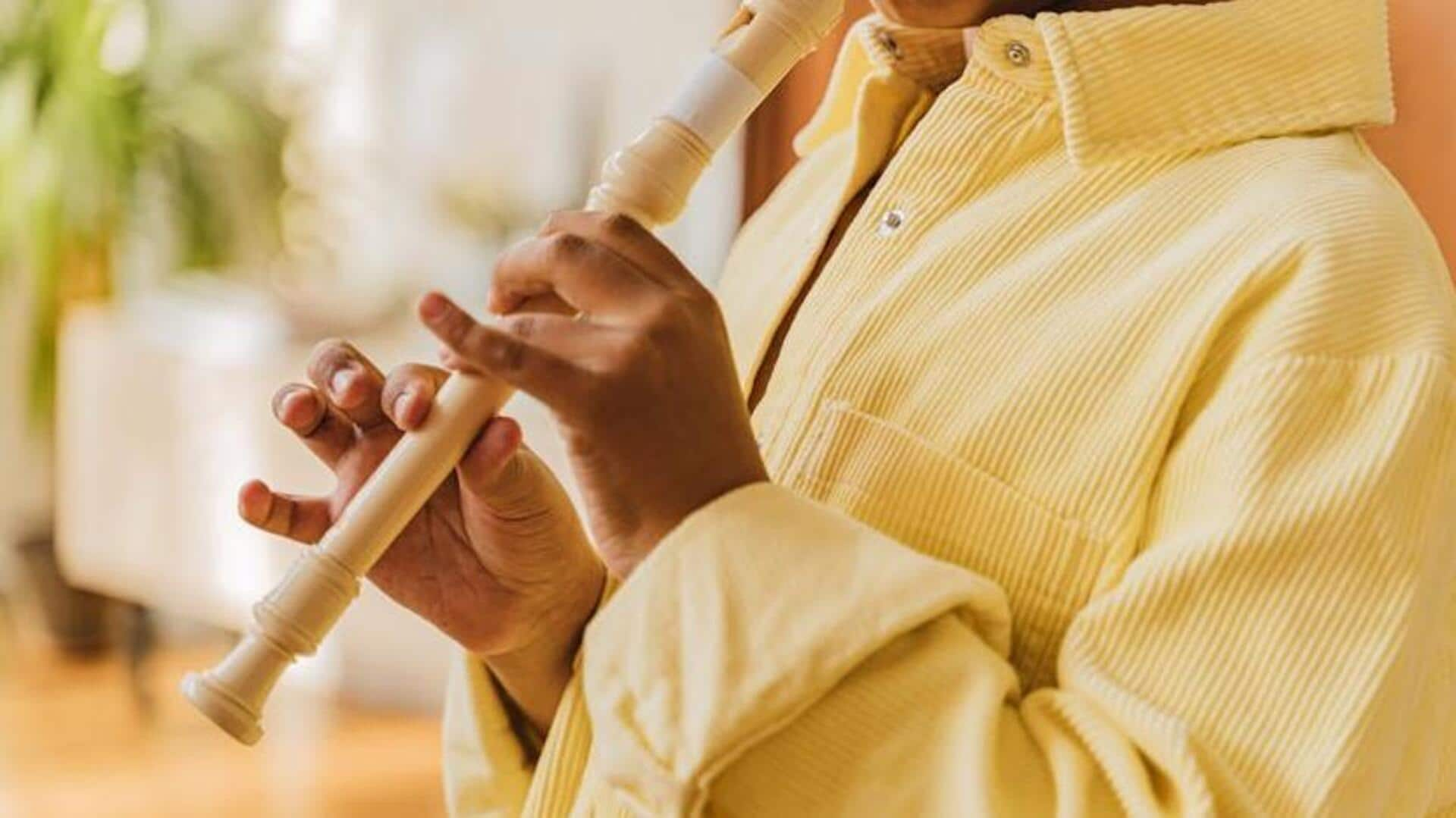
Start your kid's music journey with recorder lessons
What's the story
Teaching kids music through recorder lessons is a great way to spark creativity, enhance focus, and cultivate a lifelong love for the arts. The recorder is a user-friendly and pocket-friendly instrument, perfect for introducing kids to the world of music. This article offers essential tips for parents and guardians who want to nurture their child's musical journey through recorder lessons.
Instrument selection
Choosing the right recorder
Selecting the right recorder is key to your child's success. The soprano recorder, perfect for beginners, is small and easy to hold, making it fun to play. Choose durable plastic recorders for young learners. They are easier to clean and maintain than wooden ones, making them ideal for children. Priced between $5 and $20, they are a cost-effective option for most families.
Practice schedule
Establishing a practice routine
Consistency is the secret sauce to mastering any new skill! For kiddos starting recorder lessons, setting a consistent practice routine will supercharge their learning. Shoot for short, daily practice sessions (think 15-20 minutes) instead of long, infrequent slogs. This keeps things fun and stress-free, helping your child avoid feeling overwhelmed or losing interest.
Musical variety
Engaging with diverse music genres
By introducing children to a variety of music styles, you can enhance their learning experience and keep them excited about playing the recorder. From classical works written specifically for the recorder to contemporary pop songs that can be arranged for the instrument, incorporating variety keeps practice fun and engaging. Plus, experimenting with different music styles helps children gain a wider understanding and appreciation of music as an art form.
Social learning
Participating in group lessons or ensembles
Studying in a group can greatly enhance a child's motivation and enjoyment of music education. Group lessons afford ensemble playing opportunities, imparting valuable skills like listening attentively to others, keeping rhythm in unison, and harmonizing. Numerous community centers or local music schools provide group classes at affordable prices, starting at $10 per session.
Digital resources
Leveraging technology in learning
In the era of the internet, a world of online resources awaits to supplement your traditional recorder lessons. There are many apps specifically created for learning music theory or practicing sight-reading. These are great tools to make learning interactive and enjoyable beyond the confines of regular lessons. Plus, video tutorials on platforms like YouTube provide easy-to-follow instructions on everything from basic finger positioning to playing full songs.